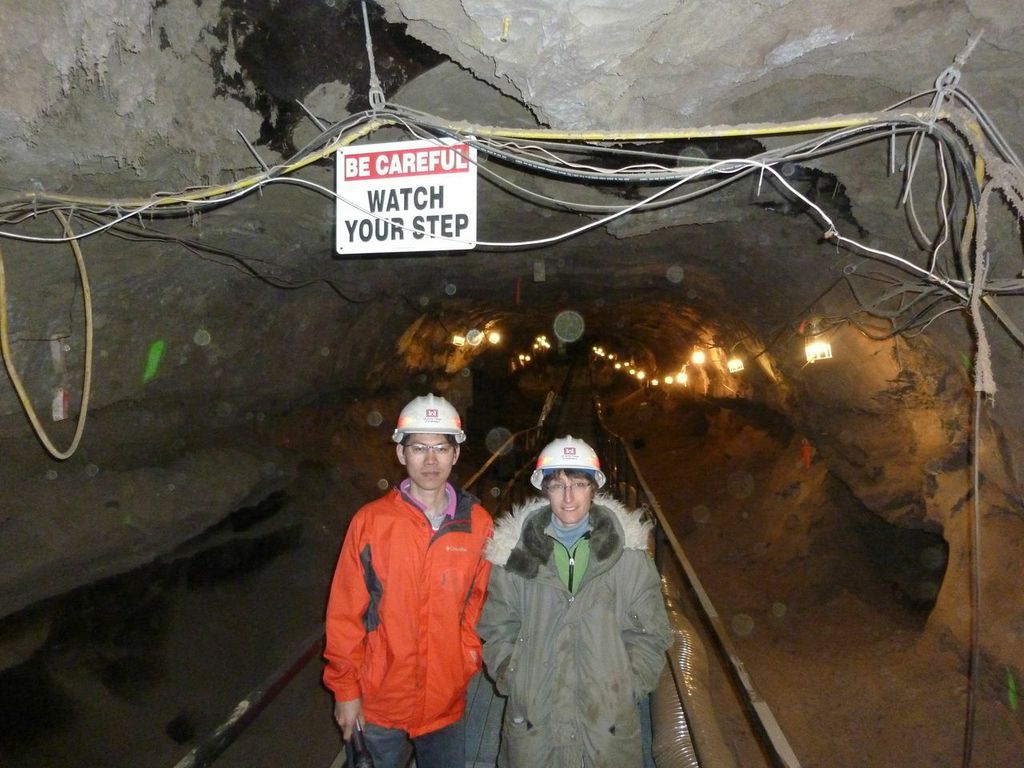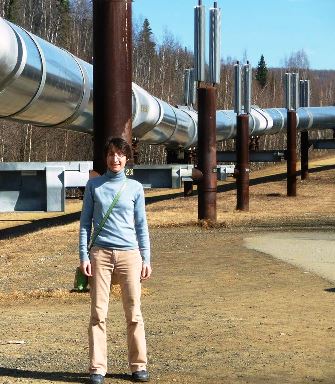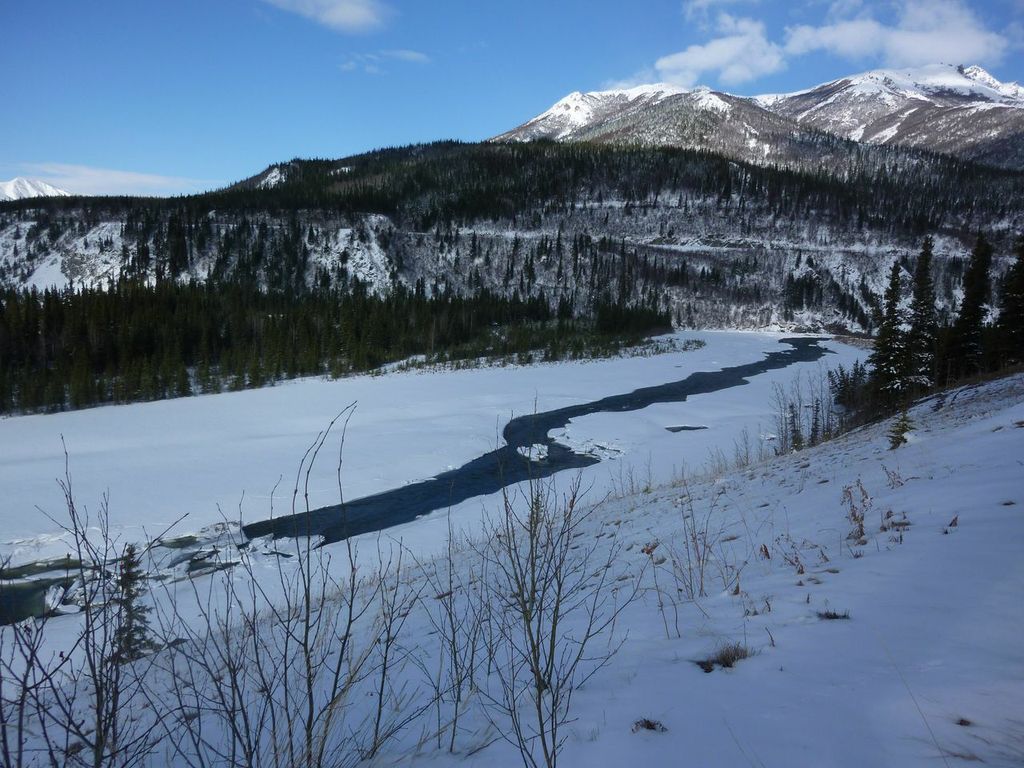 May was unusually cool for CEE's Dr. Chloe Arson, who spent two weeks in Alaska collaborating on a new research project with Dr. X. Zhang at the University of Alaska Fairbanks.
May was unusually cool for CEE's Dr. Chloe Arson, who spent two weeks in Alaska collaborating on a new research project with Dr. X. Zhang at the University of Alaska Fairbanks.
The two geotechnical professors are working on theoretical modeling of unsaturated soils. The goal of the collaboration is to characterize energy transfers in soils subject to compression, shear, drying and wetting. Arson and Zhang are planning to use their findings to write research proposals for the Alaskan Department of Transportation (AK-DOT), in order to study the behavior of permafrost around buried cables and pipelines. A major issue for AK-DOT is the prediction of freeze and thaw in soil around tubes circulating either very hot or very cold fluids (such as liquefied natural gas).
During her stay at the University of Alaska Fairbanks, Arson gave a lecture on "Thermodynamics of Rock Damage and Energy Applications," which was attended by faculty in geotechnical, mining, petroleum and structure e ngineering.
ngineering.
Arson also had the opportunity to visit the geotechnical and rock mechanics laboratories, which are equipped with very unique devices to test granular and porous media in extreme temperature and pressure conditions, and the Permafrost Tunnel Research Facility, managed by the Corps of Engineer, and used by Dr. Zhang to test anchors installed in permafrost.
The most inspiring part of the trip was probably the trip to the Arctic Circle, which included the visit of two sites instrumented by Dr. Zhang for AK-DOT. A slope stability study is aimed to test the ability of wooden chips to "air-condition" soil exposed to freeze-and-thaw cycles. A drainage system installed under the highway at the Arctic Circle is being monitored, to track differential settlements induced by freeze-and-thaw cycles.

